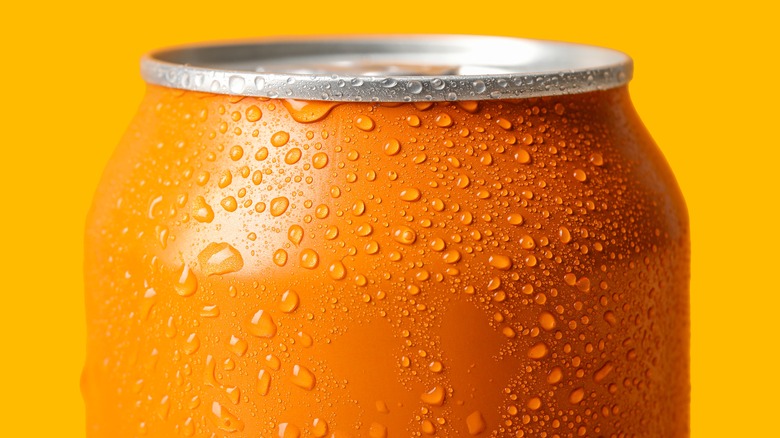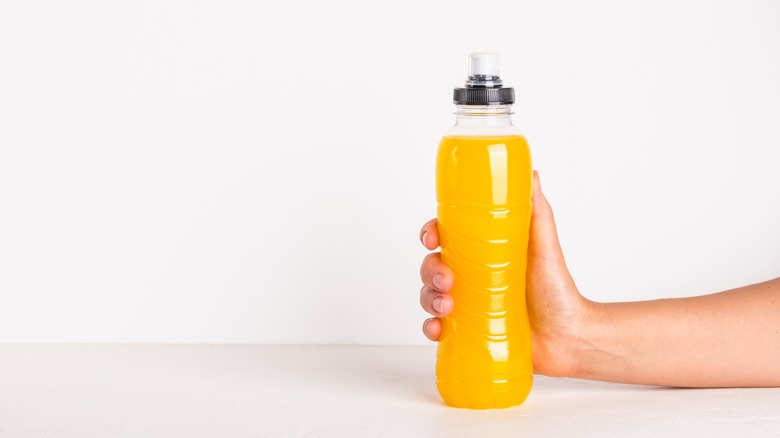The FDA Officially Bans BVOs Found In Common Sodas, But What Are They?
Fans of citrusy sodas, juices, and sports drinks should pay attention to new regulations from the Food and Drug Administration. On July 2, 2024, the FDA announced that brominated vegetable oils (BVOs) will no longer be permitted for use in food, citing safety concerns.
One myth about this soda ingredient is that it's a flame retardant, but those brominated oils are different from what is used in soft drinks. BVOs are oils that have been altered with bromine — a chemical element that occurs naturally in ocean water, among other places. Bromine is extracted via a chemical reaction involving chlorine and sulfuric acid. Once vegetable oils are brominated, they are used to emulsify citrus flavorings with the other beverage ingredients.
Studies done on rats found that bromine impacted their hearts, lungs, and thyroid glands, per Center for Science in the Public Interest (CSPI). In humans, bromine toxicity — which comes from repeated consumption or exposure to bromine — can affect the central nervous system resulting in headaches, nausea, memory loss, and loss of coordination. However, these severe neurological symptoms are typically due to recurrent exposure in agricultural and sanitation jobs, or from unsafe drinking water.
Though there has only been one case of bromine toxicity linked to beverages, it's still a good idea to look on the label when buying canned products to be sure (per CSPI). The additive is not wildly common, but it does still feature in products like Sundrop, D&G Jamaican Soda, HEB Orange Burst, and Borden Pineapple Orange Sunburst.
The toxicity of brominated vegetable oils is not a new discovery
The Food and Drug Administration has been aware of potential dangers of brominated vegetable oils since the 1960s, so much so that BVOs were removed from the list of ingredients "generally recognized as safe" by January 1970. The FDA stated, "The available safety data did not indicate an immediate health threat from the limited use of BVO in beverages but did not establish a level at which BVO could be safely used in food over a person's lifetime." However, there was apparently substantial enough research for the United Kingdom to ban BVOs in 1970 (per Center for Science in the Public Interest). The ingredient has been prohibited in India since 1990, the entire European Union since 2008, and Japan since 2010.
Over the years, the use of BVOs continued largely unchecked in the United States as the FDA has not required food companies to notify the organization when these potentially harmful ingredients were being used, according to the CSPI. Said companies were expected to conduct safety checks independently and without government oversight. In 2014, Coca-Cola elected to remove BVOs from all its drinks including Powerade, Fanta, and Fresca as did PepsiCo, which included Mountain Dew and Elvis Presley's favorite drink — orange Gatorade. Keurig Dr. Pepper — Sundrop's manufacturer — remains the most prominent business to have continued to use BVOs. All companies will be required to stop including brominated vegetable oils in their products by August 2, 2024.


